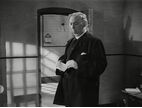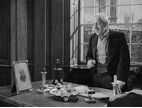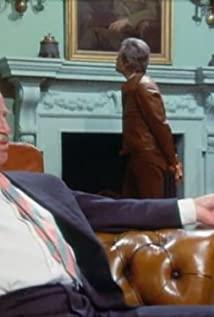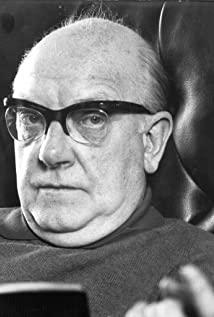Based on the British writer Roy Hoyman's novel of the same name, "Benevolence and Crown" raises a simple question, namely, how big a person's ambition is. In the film, Louis uses revenge as a means to gradually change from a lowly punk to a duke of ten thousand people. The real motivation is undoubtedly the unlimited expansion of ambition. The success of the film lies precisely in the unconventional plot setting of the story narration. Of course, the director's handy British humor is also worth learning.
The title of the film comes from the famous verse of the British poet laureate Baron Tennyson, "Benevolence is more important than a crown, and faith is better than blood." It satirizes Louis's concept of accession. From the beginning to the end, he believed that the crown was more important than the crown. Benevolence, only aristocratic blood is the only faith and dignity for survival. On the surface, Louis’s single-minded revenge action came from the protection of his mother who had been left out in the family for a long time, and the most fundamental, his most beloved girl Sibela, refused his marriage proposal and instead married Leon. This tempted him to change from quantitative to qualitative. Later, becoming a duke became the purpose of Louis’s life. Ambition gradually became the leader of all his actions. Afterwards, he killed eight people who competed with him for the title. In the pursuit of a lifetime, Louis has constantly changed his identity, refurbished, and performed scenes of entertaining and satirical tragedies.
In Louise's view, killing is the simplest thing. This absurd idea is expressed extremely solemnly throughout the film, which makes every killing appear to be both elaborate and coincidental. The banker’s son was killed because he had made Louis unemployed; the pastor’s uncle was killed because he was too wordy; the army general’s uncle was killed because he liked to preach his majestic history of war everywhere; the feminist aunt was killed Killed because she was always destroying the stability and order of the original society; as for the death of the old duke, who made his old tree want to bloom new flowers and plan to marry a young wife; the death of the captain’s uncle was purely accidental and experienced once. In the shipwreck, all the sailors were rescued, but he himself chose to coexist and die with the ship.
"Benevolence and Crown" is a classic black humor crime comedy. The English-style cold humor runs through the whole film. It is meticulous and memorable. The design of the dialogue and the words and sentences are extremely polite and grammatical, not lacking elegance but also absurd and interesting. . The handling of the plot is vaguely absurd, and it is often reminiscent of Quentin Tarantino's movies.
While Louis cleared the way for himself to become a Ferguson, his love life became more and more abundant. First, Sibela, who abandoned Louis, kept asking him to confide in the misfortune of her marriage; then she met Edith, who was beautiful, noble, decent, and loyal to her husband Henry. In the second half of the film, Louis had been pursuing Edith bitterly, and even explained his relationship with the Astene family early. Ironically, Edith still used'benevolence is more valuable than a crown. Faith is better than pedigree'come praise Louis' for'noble character'. At this time, the plot has reached an unprecedented climax. In the first half, the self-blaming, weak and poor little woman Sibela finally broke out, correcting Louis for murdering her husband Leon, and will still be immersed in the knighthood of Louis. Sent to court. In the court, Sibela succeeded in acting as a heartbroken, poor little widow. She won the trust of the jury. Finally, the ending appeared. Louis, who was holding a seven or eight life lawsuit, eventually capsized in a small gutter. , Because of a person who has nothing to do with him was convicted. Louis, who was in prison, was played by Sibela in the palm of his hand. In a blink of an eye, Louis, who had been controlling his life and killing power, became a poor worm who was carefully controlled by others. Here, end to end, the beginning of the film. It was Louis' autobiography before capitalizing in prison.
As for the ending, it is even more lingering, which can be called a magical touch. The acquitted Louis walked out of the prison gate. Edith and Sibela each sat in a carriage, waiting for his choice. Triumphantly, he was asked whether his autobiography could be drafted, and his face was ashamed and his eyes were bleak. It turned out that the manuscript was completed but fell into the cell.
When "Benevolence and the Crown" was released that year, it was successfully selected as the main competition unit of the Venice Film Festival. To this day, the British Film Association has named it the "Best British Film in a Century". The protagonist Alec Guinness contributed to the success of the film. He played the role of the octagonal character in the film, creating a new record of his own.
View more about Kind Hearts and Coronets reviews











